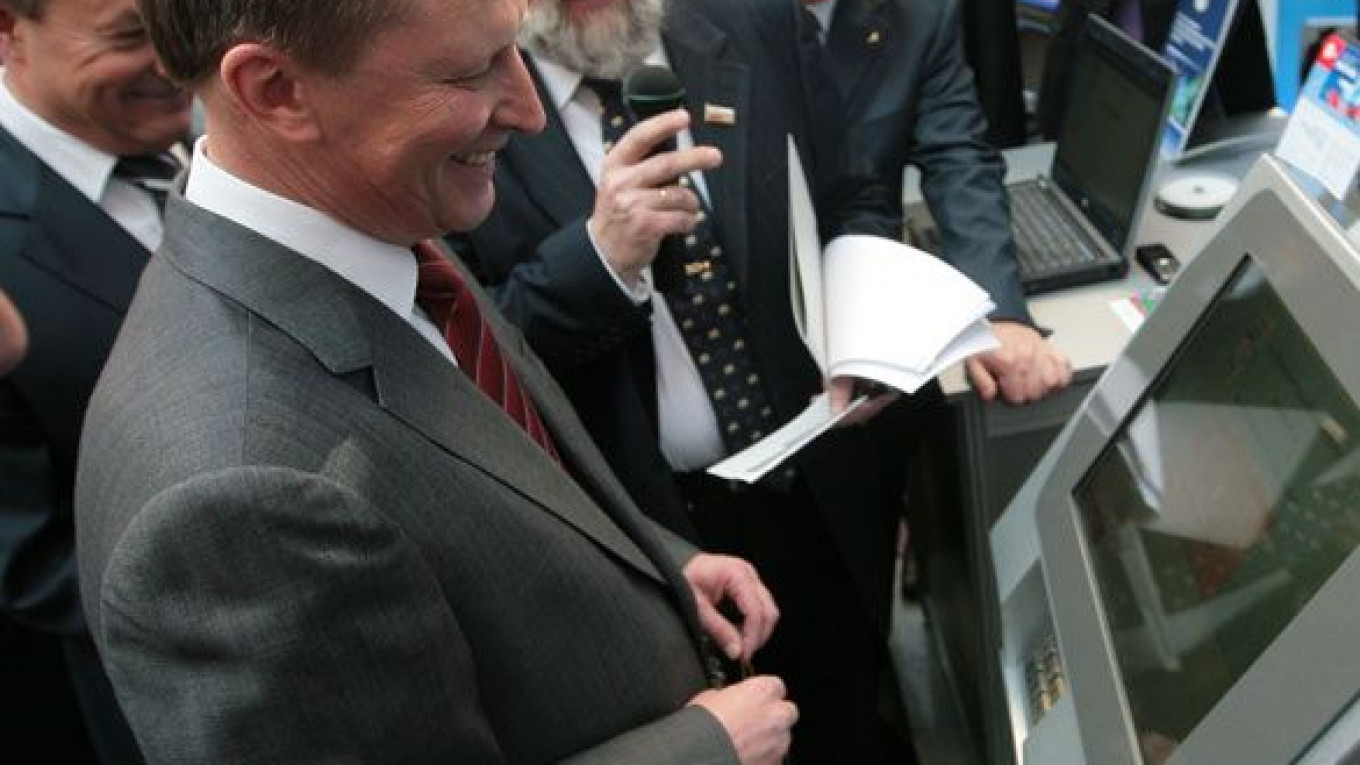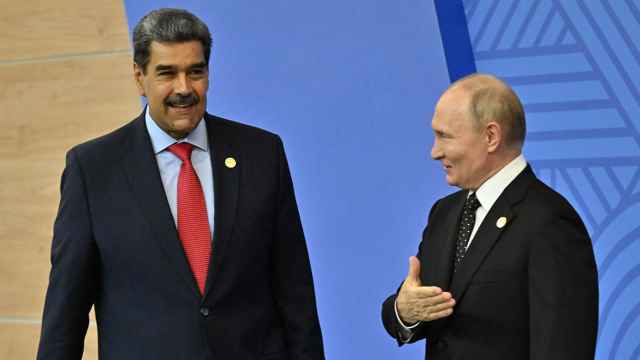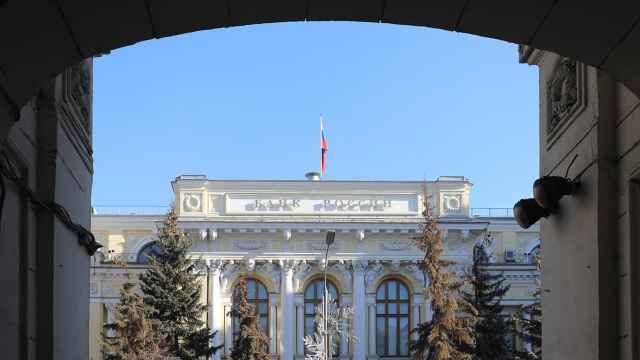A new seaport may be built in Murmansk as part of a government initiative to develop the northern city as a key transportation hub, Deputy Prime Minister Sergei Ivanov said Thursday.
Murmansk represents one of the country's most promising transportation hubs because its waters do not freeze in the winter and provide ships with direct access to the ocean, Ivanov said.
The government could build “a modern port with a big cargo turnover,” Ivanov told Prime Minister Vladimir Putin at a meeting of the Presidium.
He said the Sea Board, a government body that oversees maritime issues, would meet Saturday to consider an investment plan for Murmansk that includes the construction of a new seaport in Murmansk Bay.
The Sea Board meeting, which Ivanov will chair in the Murmansk region, will also consider how to enforce the government’s policies on Arctic development through 2020, he said.
Analysts said Murmansk had a number of advantages as a seaport. “It’s very close to Europe, while St. Petersburg is already overloaded. Russia needs more deep-water and non-freezing ports accessible to Europe,” said Mikhail Ganelin, a transportation analyst with Troika Dialog.
Ivanov declined to provide an investment estimate for the project, but Ganelin said it might run into the billions of dollars. Building additional needed infrastructure would likely increase the costs, Ganelin said.
Separately, Deputy Transportation Minister Viktor Olersky said in St. Petersburg on Thursday that work on the Murmansk transportation hub would only begin after the government issued an order to create a special economic zone in Murmansk, industry newswire PortNews reported. He said the order might be signed as soon as October.
The project will be financed by private investors rather than the federal budget, PortNews said.
Olersky said two major investors — coal mining company Kuzbasrazrezugol and the Sibir business union — were ready to invest, but “the existing mechanism is hindering this.”
A coal terminal that would be part of the transportation hub would have the capacity to transfer more than 20 million tons of coal a year, while an oil terminal would have the capacity of 12 million to 13 million tons a year, Olersky said.
He said the planned container terminal was unlikely to manage the 1 million transit containers that are anticipated annually.
Thursday's Presidium meeting also discussed Russia’s bid to join the World Trade Organization and state support for small and medium-sized enterprises.
Putin said Russia would fulfill all WTO membership requirements only after it joins the world trade body and not before.
“No restrictions connected with the membership process must come into force until we completely join the organization,” he said.
“This process could last forever, and we could face the prospect of being bound to restrictions without being able to use the advantages of full membership in the organization,” he said.
A Message from The Moscow Times:
Dear readers,
We are facing unprecedented challenges. Russia's Prosecutor General's Office has designated The Moscow Times as an "undesirable" organization, criminalizing our work and putting our staff at risk of prosecution. This follows our earlier unjust labeling as a "foreign agent."
These actions are direct attempts to silence independent journalism in Russia. The authorities claim our work "discredits the decisions of the Russian leadership." We see things differently: we strive to provide accurate, unbiased reporting on Russia.
We, the journalists of The Moscow Times, refuse to be silenced. But to continue our work, we need your help.
Your support, no matter how small, makes a world of difference. If you can, please support us monthly starting from just $2. It's quick to set up, and every contribution makes a significant impact.
By supporting The Moscow Times, you're defending open, independent journalism in the face of repression. Thank you for standing with us.
Remind me later.






